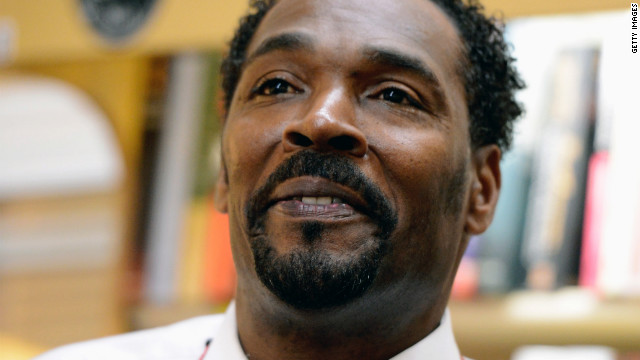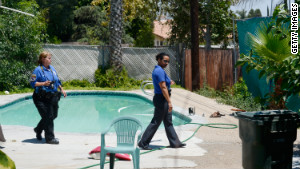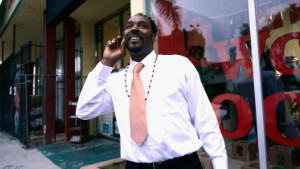
- NEW: Investigators found "nothing to suggest suicide or homicide," autopsy says
- Autopsy says Rodney King was "in a state of drug and alcohol-induced delirium" when he died
- King's fiancee found him at the bottom of a swimming pool and called for help, police say
- 1991 beating by Los Angeles police sparked riots after four officers involved were acquitted
Los Angeles (CNN) -- Rodney King's death in June was the result of accidental drowning, although alcohol, cocaine, marijuana and PCP found in his system were contributing factors, authorities said Thursday.
King, whose beating by Los Angeles police in 1991 was caught on camera and sparked riots after the acquittal of the four officers involved, was found dead in the swimming pool at his Rialto, California, home on June 17, authorities and his fiancee said. He was 47.
King was "in a state of drug and alcohol-induced delirium" and "either fell or jumped into the swimming pool," said the autopsy report released by the San Bernardino County coroner Thursday.
Family, friends remember Rodney King at funeral

 Listen to King's fiancee's 911 call
Listen to King's fiancee's 911 call "The effects of the drugs and alcohol, combined with the subject's heart condition, probably precipitated a cardiac arrhythmia and the subject, thus incapacitated, was unable to save himself and drowned," the autopsy summary said. "There is nothing in the history or autopsy examination to suggest suicide or homicide, and the manner of death is therefore judged to be accident."

 Arsenio Hall remembers Rodney King
Arsenio Hall remembers Rodney King 
 King was struggling with his sobriety
King was struggling with his sobriety No foul play is suspected and the police investigation of his death is closed, Rialto Police Capt. Randy De Anda told CNN.
The autopsy findings are consistent with the police investigation's conclusion, De Anda said.
Timeline of events in Rodney King's life
King's fiancee, Cynthia Kelly, found him at the bottom of the pool and called 911 for help at 5:25 a.m. on that Sunday morning, police said. Police removed him from the pool and performed cardiopulmonary resuscitation until paramedics arrived. He was pronounced dead at a local hospital, police said.
Kelly, who was a juror in King's lawsuit against the city of Los Angeles in 1994, told police that King was an "avid swimmer" but that she was not, De Anda said. She said the two had just had a conversation and she went inside, but came back out after hearing a splash and saw him at the bottom of the pool.
Nearly a year after the rioting in Los Angeles, the four officers stood trial in federal court on civil rights charges. Two were found guilty and sentenced to 30 months in prison, and two were acquitted. King also sued the city of Los Angeles and was awarded $3.8 million in damages.
No comments:
Post a Comment